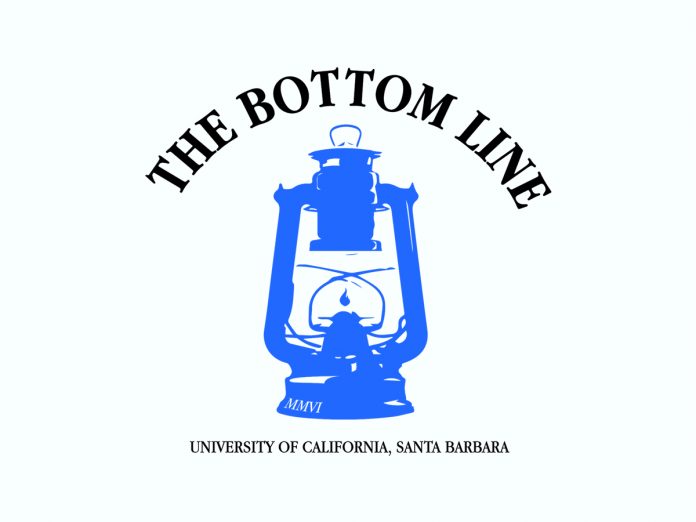Kyle Dent
Last Thursday at noon, the Masculinities Project, an organization that seeks to educate people on and bring awareness to interpersonal violence, led a march from Storke Tower to the Student Resource Building (SRB), ending with a bake sale to raise funds for survivors.
The Masculinities Project was started this school year by a coalition of UCSB faculty and staff. It aims to promote a healthier culture of masculinity in the hopes of reducing interpersonal violence and increasing the report of these crimes when they occur.
A few of the founding members include Don Lubach, Associate Dean of Students, and Seth Goradietsky, a psychologist at the Counseling and Psychological Services (CAPS) Gaucho Support Center.
The event began with a few speeches by some of the faculty members behind the project, one of which came from Lubach.
Lubach discussed the group and its works towards a campaign “against power-based gender violence.” He went on about the lasting, rippling effects of interpersonal and sexual assault, and said that the project “is in no way trying to condemn masculinity,” but to open discourse about it, and how to engage with it healthily.
The Masculinity Project wants men to understand that healthy masculinity has nothing to do with dominance or having power over others, which is the cause of much domestic violence in America. Additionally, their reasoning behind promoting healthy masculinity is twofold; not only to stop domestic violence, but to get more men to report when they themselves are victims.
According to the National Coalition Against Domestic Violence, one in four women and one in nine men experience “severe intimate partner physical violence,” and one in 10 women have been raped by a significant other. However, no such data exists for men, which is symptomatic of men’s disdain for appearing “weak” by being assaulted. The Masculinity Project hopes to amend that.
After the speeches, 40 marchers began walking through campus, holding signs distributed by the organization. One such sign described “The three D’s,” different approaches to intervening during a potential crime: using subtle distraction, delegating others to intervene, and directly calling out the perpetrator.
The march proceeded to the SRB, where a bake sale selling doughnuts, Woodstock Cinnabread, gift cards for restaurants in Isla Vista, and cookies baked by members of The Masculinities Project greeted participants. Goradietsky, the main organizer of the march, explained how the bake sale would benefit survivors.
“We’re donating the money to an organization that provides resources to survivors. We’re still narrowing it down, but we’re fairly certain we’re going to give it to a rape crisis hotline in downtown Santa Barbara. We want to keep it local.”
April 24 is also “Denim Day,” where allies wear denim jeans and jackets to show support for survivors of sexual assault. Hosting the march on this specific date was no mere coincidence, according to Don Lubach; the organization hopes to make this a yearly event that grows as time goes on.
However, Goradietsky mentions that it’s important for everyone, and men especially, to keep these conversations going instead of only acknowledging these crimes and their survivors once or twice a year.
“You see this in the news all the time, and just recently with the … Kavanaugh hearings. We need to open up discussions when we so blatantly have a crisis … discussions between men and women, on how to offer support, on what consent is … it’s such a tricky concept, it needs to be talked about.”
According to Lebach, UCSB students and staff report more domestic and sexual violence than any other UC. However, he emphasizes that we can continue to do better, and that awareness about how incredibly often these offenses occur, and the long term effects they have, is integral to stopping interpersonal violence (IVP).
Studies also show that there is a link between IVP and depression and suicide, signalling the importance of crisis hotlines that the bake sale donations are going to.
The Masculinities Project hopes to start a website and allow community members to join the organization, but in the meantime, there are other ways for students to get involved. Goradietsky recommends participating in a “Green Dot Training,” which teach participants how to safely and effectively intervene in potentially violent scenarios, with methods such as the aforementioned “3 D’s.”
For those interested in becoming more knowledgeable on the subject, Tristin Bridge offers a class on the culture of masculinity in the sociology department.
If you are a witness to or a victim of IVP, Goradiestsky recommends talking to the UCPD’s Detective Kovena Avila, UCSB and Isla Vista’s dedicated interpersonal violence investigator. She can be contacted at (805) 893-3446 and kovena.avila@police.ucsb.edu.











